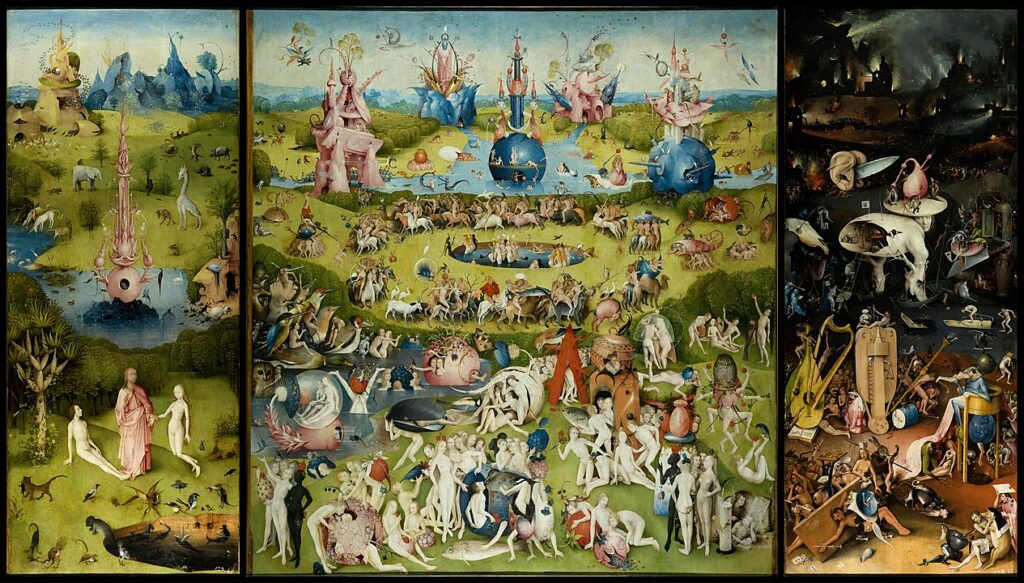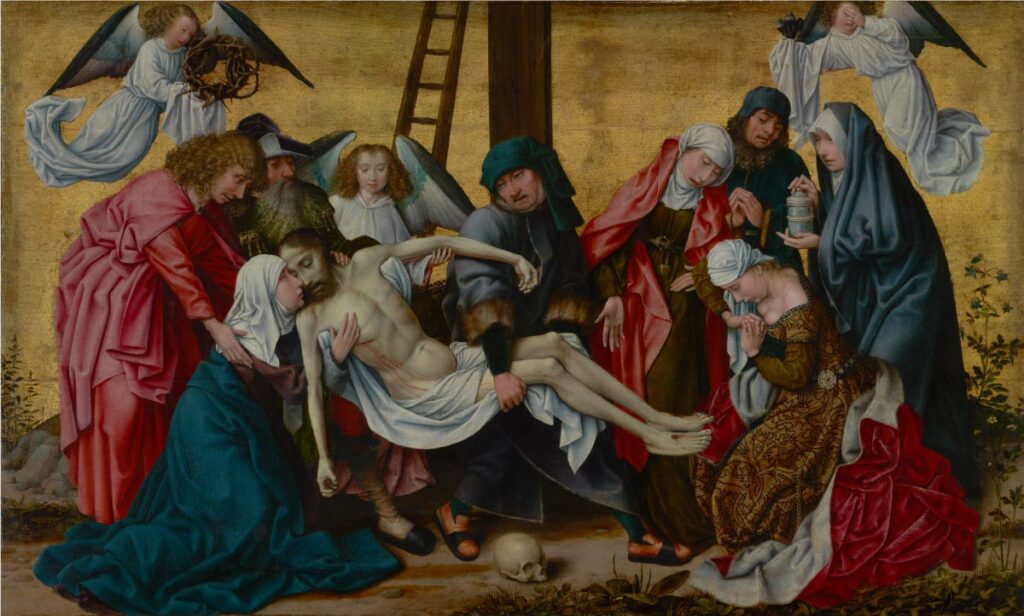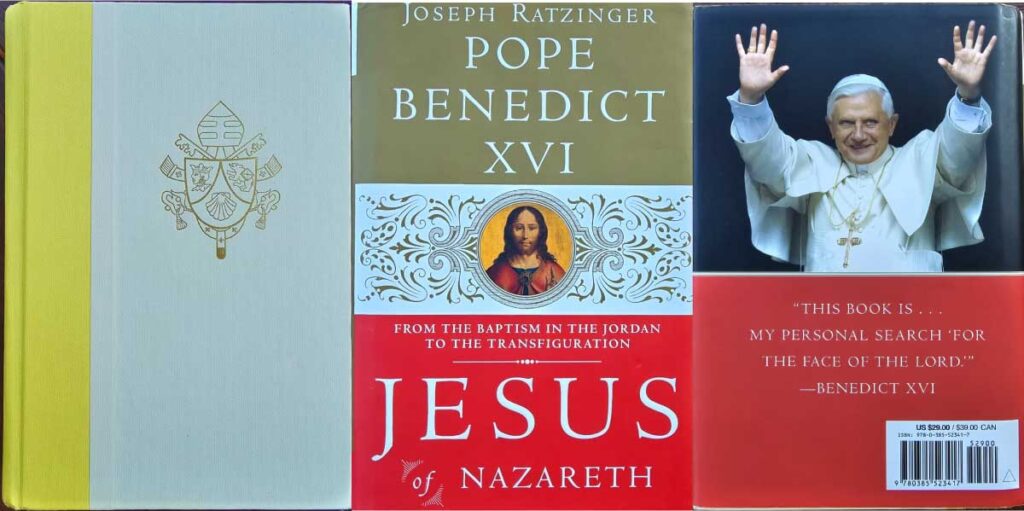Reincarnation—the belief that souls undergo a cycle of death and rebirth in new bodies—is common in many Eastern religions, such as Hinduism and Buddhism. However, the Catholic Church and Christianity as a whole firmly reject reincarnation as incompatible with divine revelation, human dignity, and the nature of salvation. This rejection is based on Sacred Scripture, Sacred Tradition, and the teachings of the Church, as outlined in the Catechism of the Catholic Church (CCC) and the writings of the Church Fathers.
The Finality of Death and the Particular Judgment
Christianity teaches that each human being has a single, unique life, after which they face divine judgment. The Letter to the Hebrews states clearly:
“It is appointed for men to die once, and after that comes judgment” (Hebrews 9:27).
This verse alone contradicts the idea of multiple lifetimes or an ongoing cycle of reincarnation.
The Catechism of the Catholic Church affirms this in its teaching on death:
“Death is the end of man’s earthly pilgrimage, of the time of grace and mercy which God offers him so as to work out his earthly life in keeping with the divine plan and to decide his ultimate destiny” (CCC 1013).
If each person has only one earthly life, then reincarnation—which presumes multiple earthly lives—is impossible. Furthermore, the Church teaches that after death, the soul faces what is called the “particular judgment,” where each individual is judged by God and assigned to Heaven (either immediately or after purification in Purgatory) or Hell.
“Each man receives his eternal retribution in his immortal soul at the very moment of his death, in a particular judgment that refers his life to Christ” (CCC 1022).
This understanding of judgment directly contradicts reincarnation, which suggests an indefinite process of returning to earthly existence rather than an eternal fate determined by God.
The Resurrection of the Body
Christian belief in the resurrection of the body is another reason reincarnation is incompatible with Christianity. At the end of time, all the dead will be raised in their own bodies. As St. Paul writes:
“The trumpet will sound, and the dead will be raised imperishable, and we shall be changed” (1 Corinthians 15:52).
The Church teaches:
“We believe in the true resurrection of this flesh that we now possess” (CCC 1017).
This means that our individual bodies will be glorified and restored, not abandoned for new ones in an endless cycle of rebirth. Christianity sees the body as an essential part of the human person, not as a mere shell to be discarded and replaced.
The Unique Dignity of the Human Person
Reincarnation often assumes that human souls can regress into lower forms of life (e.g., animals) based on their actions. This view diminishes human dignity, whereas Christianity teaches that human beings are made in the image of God (Genesis 1:27) and possess an eternal destiny that surpasses earthly life.
The Church Fathers strongly opposed any notion of reincarnation that undermined the uniqueness of the individual soul. St. Irenaeus of Lyons strongly opposed the idea of reincarnation, or the transmigration of souls, arguing that it was inherently flawed. One of his key objections was that if souls truly passed from one body to another to gain experience, they would remember their past lives. Since no one recalls past existences, reincarnation cannot serve any meaningful purpose. He writes:
“We may subvert their doctrine as to transmigration from body to body by this fact, that souls remember nothing whatever of the events which took place in their previous states of existence.” (Against Heresies, Book II, Chapter 33).
Likewise, St. Augustine strongly opposed the Platonic idea of reincarnation, particularly the notion that purified souls would return to earthly bodies. He criticised the belief that souls, after achieving purification, would desire to return to physical existence, calling it irrational. He argued that if purification leads to forgetfulness of past evils and that forgetfulness causes a desire for the body, then purification itself would become the cause of future corruption—an absurd contradiction. He wrote:
“For it is indeed foolish to believe that souls should desire to return from that life… and to come back into this life, and to the pollution of corruptible bodies, as if the result of perfect purification were only to make defilement desirable.” (City of God, Book X, Chapter 30).
The Sufficiency of Christ’s Redemption
Reincarnation is often linked to the idea of karma—the notion that past actions determine future lives. However, Christianity teaches that salvation comes not from endless cycles of suffering and purification through rebirth, but through Christ’s redemptive sacrifice. Jesus’ death and resurrection offer the possibility of forgiveness and eternal life, making reincarnation unnecessary.
St. Paul declares:
“For by grace you have been saved through faith, and this is not your own doing; it is the gift of God—not by works, so that no one may boast” (Ephesians 2:8-9).
Christianity teaches that redemption is not something achieved over multiple lifetimes but through faith in Christ, repentance, and the grace of God. As the Catechism states:
“There is no reincarnation after death” (CCC 1013).
The Testimony of Christ Himself
Jesus never spoke of reincarnation. Instead, He spoke of eternal life, the resurrection of the dead, and judgment. When He addressed the question of John the Baptist being the return of Elijah (Matthew 17:12-13), He meant it metaphorically—that John came in the “spirit and power” of Elijah, not that Elijah had literally been reincarnated as John.
Furthermore, in the parable of the rich man and Lazarus (Luke 16:19-31), Jesus describes the rich man suffering in Hades, unable to return to earth for another chance. This aligns with the Church’s teaching that there is no second earthly life after death.
The End Goal of Reincarnation vs. the Christian Vision of Eternity
The very idea of reincarnation is ultimately bleak and is incompatible with the beauty of Heaven or the justice of Hell. It presents life as an endless cycle of suffering, where past mistakes must be repaid across multiple lifetimes, with no guarantee of ever escaping. In Buddhism, the ultimate goal is nirvana, which is the cessation of all desires and attachments, leading to the end of individual existence. This is not eternal life in joy but rather a form of self-extinction—freedom from suffering through nonexistence.
In Hinduism, the end goal varies depending on the philosophical school. Some traditions, like Advaita Vedanta, seek moksha, where the individual soul (atman) is liberated from the cycle of rebirth (samsara) and merges with Brahman, the ultimate reality. This is often described as the loss of personal identity, like a drop of water dissolving into the ocean. Other Hindu traditions, such as Vaishnavism, see moksha as eternal, conscious union with a personal deity like Vishnu or Krishna, which bears some resemblance to the Christian concept of Heaven.
However, even in these traditions, the journey toward liberation is long and arduous, requiring lifetimes of striving through karma, meditation, and self-discipline. There is no guarantee of salvation, only an uncertain hope that one might eventually escape the cycle.
Christianity, by contrast, offers something profoundly different. It acknowledges suffering but presents a clear, hopeful resolution: Christ’s redemptive sacrifice. Rather than requiring countless lifetimes of struggle, salvation is freely given by grace through faith. The goal is not annihilation or a loss of individuality but eternal life in perfect communion with God. Heaven is not an impersonal absorption but a place where each soul retains its identity, perfected in love and joy.
This is why reincarnation is not just false but spiritually troubling—it denies the dignity of the individual soul, reduces salvation to a near-impossible struggle, and replaces the promise of resurrection with either extinction or an impersonal merging. Christianity, on the other hand, offers true hope, true redemption, and true eternal life through the Truth himself.
Historical Rejection of Reincarnation
Throughout Church history, Christian leaders have condemned reincarnation. The Second Council of Constantinople (553 AD) formally rejected Origen’s (c. 185–253 AD) theory of the pre-existence of souls, which some mistakenly associate with reincarnation. The Council declared:
“If anyone asserts the fabulous pre-existence of souls and the monstrous restoration that follows from it, let him be anathema.”
This official condemnation made it clear that belief in multiple earthly lives was incompatible with Christian doctrine.
Conclusion
The Catholic Church and Christianity as a whole reject reincarnation because it contradicts fundamental doctrines about death, judgment, resurrection, and salvation. The Bible teaches that we have one life, followed by judgment (Hebrews 9:27), and that salvation comes through Christ, not through repeated cycles of rebirth. The Church Fathers, including St. Irenaeus and St. Augustine, also opposed reincarnation, and the Church has reaffirmed its rejection throughout history, most notably in the Catechism of the Catholic Church.
Christianity offers something far greater than reincarnation: the hope of eternal life with God. Instead of an endless cycle of suffering and rebirth, Christ’s sacrifice brings forgiveness, redemption, and the promise of resurrection. Reincarnation, in contrast, traps souls in a perpetual state of striving, never attaining true peace or fulfilment. In a way, it resembles a form of Hell—an existence where one is forever burdened by past actions, constantly struggling to escape the wheel of life and death. But through Christ, the human soul is not doomed to repeat its failures; it is invited into a final and glorious union with God, where suffering ceases and eternal joy begins.



